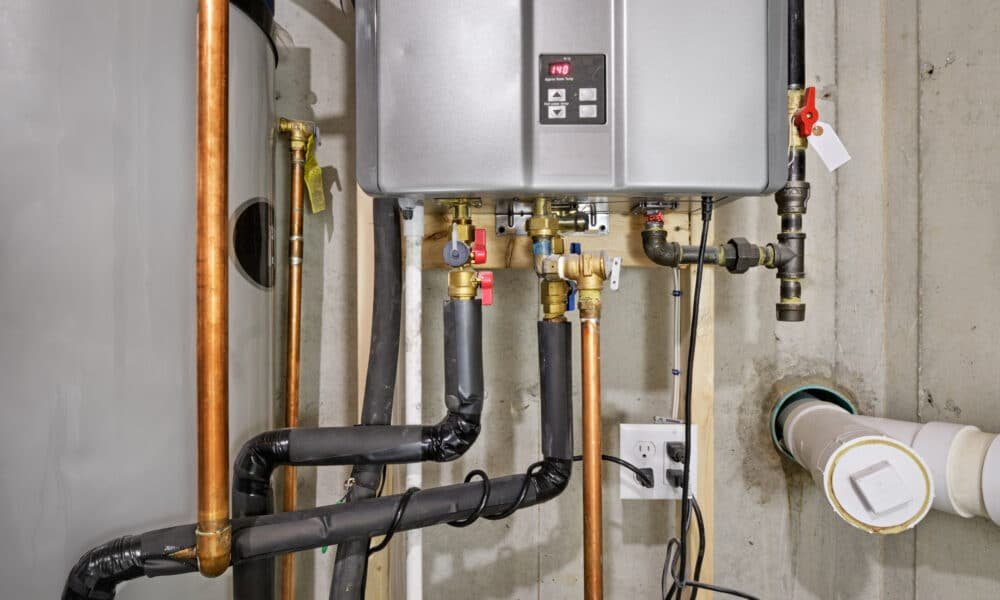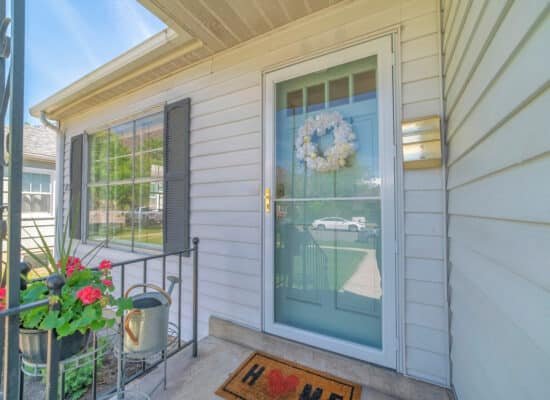Thinking about making the switch from a traditional tank water heater to a modern tankless water heater system? You’re in the right place. Many homeowners are drawn to the benefits of a tankless water heater—endless hot water, higher efficiency, smaller footprint—but one big question comes up first: cost tankless water heater? This article walks you through what you’ll likely spend (both materials and labour), what drives the cost up or down, and how to evaluate whether the upgrade is worth it. We’ll also provide real product examples and a cost table to help you plan smartly.
Table Of Content
- Why Consider Converting to a Tankless System?
- Benefits of Going Tankless
- Why Conversion Cost Is Higher Than A Straight Replacement
- Typical Cost Overview for Conversion
- Cost Breakdown Table (Material + Labour)
- Product Examples – Unit Costs & What to Expect
- What Drives the Cost Up (and Down)
- Fuel Type & Venting Requirements
- Existing Infrastructure
- Unit Size & Efficiency
- Labour Rates & Complexity
- Permits, Disposal & Site Prep
- Long-Term Savings
- Rebate & Incentive Programs for Tankless Water Heater Conversions
- Regional Cost Insights by State/Metro
- Is Conversion Worth It?
- Conclusion
- FAQs
Why Consider Converting to a Tankless System?
A traditional tank water heater holds and heats a large volume of water and keeps it hot 24/7, which leads to standby energy losses. A tankless water heater, by contrast, heats water on demand as it flows through the unit.
Benefits of Going Tankless
-
Space-saving: no bulky storage tank.
-
On-demand hot water: no running out if sized correctly.
-
Higher efficiency: According to U.S. Department of Energy you can save up to 24-34% on water-heating costs when upgrading in appropriate scenarios.
-
Longer lifespan: Tankless units often last 15-20 years or more, compared to 8-12 years for many tank units.
Why Conversion Cost Is Higher Than A Straight Replacement
Switching from a tank to a tankless isn’t just swapping units. You often face:
-
Electrical panel upgrades (for electric tankless).
-
Gas-line upgrades or venting changes (for gas/propane tankless).
-
Rework of plumbing, mounting, and sometimes structural changes.
Consequently, conversion costs can be significantly higher than replacing with another tank.
Typical Cost Overview for Conversion
Here’s what current research shows for converting to a tankless system:
-
The cost to install a tankless water heater (unit + labour) ranges broadly from $1,200 to $3,500 in many simple cases.
-
Some more detailed estimates show higher ranges—up to $5,400 to $7,400 for complete installs, especially when there are major upgrades involved.
-
Conversion from a tank system to full tankless, including upgrades, can run even higher—sometimes in the $6,000 to $9,000+ range.
So when budgeting for conversion, think of a base range of $2,000 to $5,000, with potential to go much higher depending on upgrades required.
Cost Breakdown Table (Material + Labour)
Here’s a clear table to help you estimate the cost of converting your tank system to tankless:
| Scenario | Material & Unit Estimate | Labour/Conversion Estimate | Total Estimate |
|---|---|---|---|
| Simple replacement (compatible wiring/gas, minimal upgrade) | $500 – $1,500 | $700 – $2,000 | $1,200 – $3,500 |
| Conversion with moderate upgrades (vent/gas line/plumbing changes) | $1,000 – $2,000 | $1,500 – $3,000 | $2,500 – $5,000 |
| Major conversion (panel upgrade, gas line/vent overhaul, large unit) | $2,000 – $4,000+ | $2,000 – $5,000+ | $4,000 – $9,000+ |
Please note: These are ballparks. Your actual cost depends on your home’s existing infrastructure, fuel type (electric vs gas), unit size, and local labour rates.
Product Examples – Unit Costs & What to Expect
Below are examples of actual tankless units to give you a sense of material costs:
- Rinnai HE Series 5.3 GPM Natural Gas Tankless Water Heater: Approx $667+ unit cost, gas whole-house style.
-
Eccotemp 7.0 GPM Outdoor Liquid Propane Tankless Water Heater: Approx $829 unit cost, outdoor LP model.
-
Titan N‑210 Electric Tankless Water Heater: Approx $442 unit cost.
-
Rheem Retex‑18 Electric Tankless Water Heater: Around $425 unit cost.
-
ENVO Atami 27 kW Electric Tankless Water Heater: Approx $320 unit cost.
-
GE 27 kW Tankless Electric Water Heater: Approx $552 unit cost.
These material prices show you the upfront “unit” cost. Don’t forget to budget for installation, upgrades, fuel line/venting, and permit work.
What Drives the Cost Up (and Down)
Fuel Type & Venting Requirements
Electric units often cost less upfront but may require major electrical upgrades. Gas/propane units require venting and possibly larger gas lines—all adding cost.
Existing Infrastructure
If your home already has compatible wiring, venting and gas line sized properly, cost stays lower. If you’re converting from a poorly equipped tank system, expect higher costs.
Unit Size & Efficiency
Larger flows (for multiple bathrooms/appliances) or high-efficiency models cost more. Premium features raise material cost.
Labour Rates & Complexity
Homes with hard access, many walls to cut, or need rewiring/pipe rerouting will pay more. Regional labour rates also vary widely.
Permits, Disposal & Site Prep
Permit fees, tank disposal, and site adjustments add to the budget. These often get overlooked but are real costs.
Long-Term Savings
Conversion cost may be high, but energy savings and longer lifespan of the tankless system provide return on investment over years.
Rebate & Incentive Programs for Tankless Water Heater Conversions
Here’s a summary of current federal and utility-level rebates & incentives that your readers can take advantage of when converting to a tankless system:
-
Federal Tax Credit: For certain high-efficiency tankless water heaters that are ENERGY STAR-certified, you may qualify for a tax credit covering 30% of the cost up to $600 for natural gas/propane units installed between 2023–2025.
-
State/Utility Rebate Example (Pennsylvania): UGI Utilities offers a $400 rebate for purchasing and installing an ENERGY STAR certified natural-gas tankless water heater.
-
State/Utility Rebate Example (Alabama): Alabama Power has a rebate program for electric water heaters, but tankless units are excluded in this particular program—so it’s important to check specific utility rules.
-
Guidance: Direct readers to the federal list of eligible products and local rebate finders via the ENERGY STAR portal.
Regional Cost Insights by State/Metro
Here are some region-specific cost examples that your readers can use to compare against their local market:
-
For instance, in Massachusetts, installations from Rinnai and Navien tankless units run between $5,999 to $10,500 including labour and materials.
-
National averages: installations for tankless water heaters typically range $1,200–$3,500 for many homes.
Is Conversion Worth It?
If you plan to stay in your home for many years, have high hot-water demand, and pay high energy bills, switching to tankless can pay off—especially when factoring in increased lifespan and efficiency. However, if your current tank system is fine, your hot-water demand is low, or you plan to move soon, the higher upfront cost may not justify the switch. Many articles caution that tankless is not always the best economic choice in the short term.
Conclusion
Converting from a traditional tank water heater to a tankless system is a significant home-upgrade decision with many benefits—but also significant cost. Understanding the cost tankless water heater conversion (unit + labour + upgrades) helps you plan, compare quotes, and decide with confidence. Use the cost tables above, review your home’s infrastructure, choose units carefully (see the product examples), and consult professionals. If you get it right, your upgrade can bring comfort, energy savings and longevity—with payoff over time.
FAQs
1. What is the average cost to convert from a tank heater to a tankless system?
The typical conversion cost ranges from about $2,000 to $5,000 for moderate upgrades, and can climb to $4,000-$9,000+ if major electrical, venting, or fuel-line upgrades are required.
2. Can I install a tankless water heater myself to save money?
While DIY may be tempting, conversion often involves gas line work, venting, electrical upgrades and permits. Professionals are strongly recommended to ensure safety and code compliance.
3. How much can I save on energy bills with a tankless system?
According to the U.S. Department of Energy and cost guides, homeowners can save 24%-34% on water-heating energy when switching to tankless in appropriate settings.
4. How long will a tankless water heater last compared to a tank model?
Tankless systems typically last 15-20 years or more, while many tank systems last 8-12 years—so the longer lifespan contributes to cost-effectiveness.
5. What are the major hidden costs when converting to tankless?
Hidden costs may include: upgrading electrical panel or service, increasing gas line size, installing proper venting, obtaining permits/inspections, disposal of old tank, and labour for complex installation.
6. Is a tankless system always the better choice?
Not always. If your home has low hot-water demand, you plan to move soon, or your current tank system is functioning well with reasonable efficiency, sticking with a tank might make more sense from a short-term budget perspective.









![Shiplap Costs Per Square Foot: Proven Expert [2026 Pricing Guide] Shiplap Costs](https://mynexthouseproject.com/wp-content/uploads/2026/01/Shiplap-Costs-550x400.jpg)



